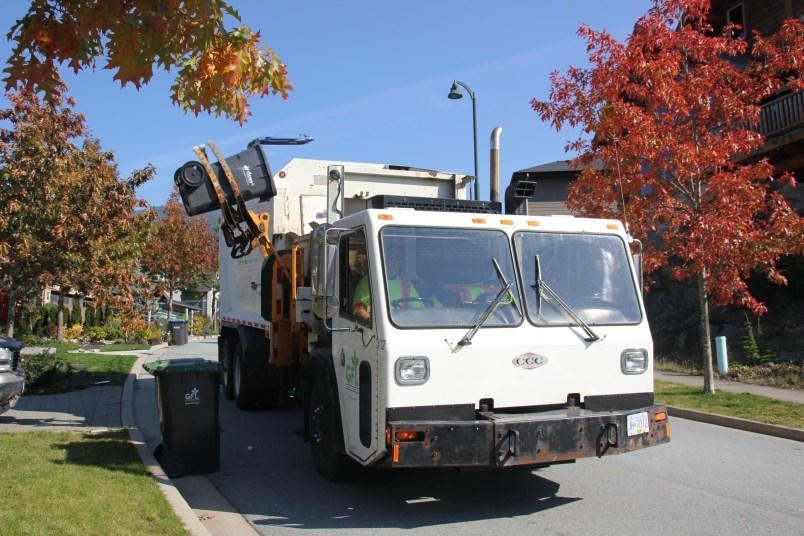With less business happening in town as a result of COVID-19, there's been less garbage to pick up — at least from the commercial sector.
"If you're commercial sector, for instance, our organics route... has gone to less than a quarter of its regular route because that's all restaurants... and they're not here," said Denise Imbeau, Green For Life's general manager in the Sea to Sky Corridor.
There have also been fewer pickups from commercial customers that are dependent on tourism, she said. Whistler Blackcomb, which declared it would shut its doors early as a result of the pandemic, is one example.
She said that there may be upticks in pickups from places such as clinics or hospitals, but generally speaking, the overall effect of COVID-19 has led to a downward trend in waste.
Imbeau also has been noticing steady lineups at the landfills — it seems residents are taking their cleaning more seriously at this time.
The sanitation sector, like virtually every other part of town, has been impacted by the pandemic.
"What it's been is a disruption and a change to business as usual at all levels, but we've been able to accommodate," said Imbeau.
It's prompted a number of changes in how operations are done on a day-to-day level as well.
She said that the company has had to introduce a wide variety of social distancing and cleaning measures, but business continues.
Imbeau listed a variety of changes made as a result of the pandemic.
Staffing levels have been greatly reduced in the company's offices, with people alternating between working at home in order to decrease social contact.
Workers getting ready to go out into the field have been staggering their shifts to reduce traffic in meeting areas. Individuals carry hand sanitizer, and vehicle operators clean their machines before getting in.
Also, only one person is allowed in a truck at a time — something which is possible in �鶹�����for residential garbage pickup, because vehicles in town have automated arms that pick up the totes. Drivers can work solo.
Everyone is also wearing gloves. High-contact areas are regularly wiped down.
She said the higher precautions have paid off.
Despite the fact many of these workers are dealing with people's waste every day, there have been no confirmed cases of COVID-19 among her staff, Imbeau said.
She said about 15 people went into isolation as a precaution either as a result of returning from abroad or having underlying health conditions, but all save for one are back at work.
There have been some challenges. At times, operations have had to be scaled back to ensure social distancing measures are in place, and some customers have complained.
However, she said the crisis has also brought out the good in others.
"One lady said when you hear the bells ringing at 7 p.m., can you please tell your staff that's for them as well," Imbeau said.




